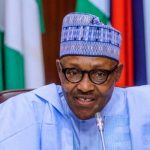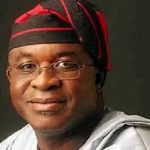Editorial: Nigeria at 60 (1)

The political entity known as Nigeria is more than sixty years old. As a country, Nigeria came into being in 1914 when the stealth and force of the colonial government, and naivety cum greed of some of our forebears declared the colony of Lagos and protectorates of Northern and Southern Nigeria as territories under the governance of the British Monarchy.
However, it was not until October 1, 1960 that it became self-governing.
True, we have a culture of celebrating the attainment of independence every October 1, the question may yet be asked, should we be celebrating our independence?
Some argue that counting our age by reference to the day the colonialist yielded what he illegally took is admitting the lie that we were non-existent prior to 1914.
But another side of the argument is that we should count Age Nigeria from its independence and celebrate it in memory of the success of the nationalist struggle to wrest back our independence and political autonomy for the new nation! But is there much to celebrate for Nigeria at 60?
This question is pertinent because the existence of Nigeria has probably never been as tried as it is now.
At independence, there was much hope for the new nation.
Many believed that the new nation had enough resources – human and material in its territories to deliver development to its people.
Who better to do that than the people themselves?
It was evident that the colonialist was only there for economic self-interest and any good done was aimed at advancing that self-interest.
Yet, there were a few who feared for the new nation. The tensions were palpable even during the independence negotiations.
The “fear of domination” by the other was a consistent undertone.
Northern political elites, mindful that their region was not at par with the south educationally and perceiving that this would be to their disadvantage, were reluctant to support the agitation for independence led by southern leaders.
The ethnic minorities registered their fear of marginalisation before the Willinks Commission.
To allay these fears, the constitutional response was the adoption of the federal structure of government and the guarantee of a bill of individual rights.
With these in place, it was thought that each region would chart its own development course, which would be adapted to its cultural vision and aspirations. Against this backdrop, each region had its own Constitution.
In these diverse contexts, everyone could rest assured that their right to be different in religious and political beliefs, and ethnicity was secure.
With these antidotes against disunity and rupture in place, the political visionaries were convinced that all that was needed to build one nation of Nigerians from the multifarious peoples inhabiting the geographical territory of Nigeria was in place. Indeed, a new nation started to evolve.
Nigerians of different ethnicities and religions made their homes and undertook economic enterprises wherever they pleased in the country.
Various governmental initiatives were instituted to promote national unity by enabling improved inter-ethnic understanding.
It was thought that in a matter of time, the differences in tribe, tongue, and religion would melt into one nation.
This expectation was, however, dashed by the first military coup in 1966, the ethnic pogrom that soon followed and the consequent secession of the Biafra Republic.
READ ALSO: Nigeria @60: Buhari to address Nigerians from Eagle Square
With the battle cry “To Keep Nigeria one is a task that must be done”, the federal government resisted the secession through a Civil War fought over three odd years. Sadly, more seeds of discord had been sown.
60 years into our life as a country, many doubt that we can ever build a nation.
They therefore challenge the continued existence of Nigeria as one country.
The wailings of marginalisation and domination continue to rent the air at every turn.










